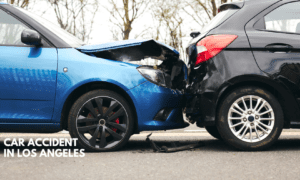After a car accident, you might suffer whiplash or neck injuries, traumatic brain injuries, spinal cord damage with potential paralysis, fractures, and internal organ trauma. These conditions often result in persistent pain, reduced mobility, cognitive changes, or even lifelong disability. Some injuries cause chronic complications like nonunion of bones, organ dysfunction, or psychological distress. At firms like Goldenzweig Law Group PLLC, legal teams frequently work with clients navigating these medical challenges. Proper diagnosis and prompt treatment improve outcomes and reduce long-term risks. There’s more to know about how these injuries impact your recovery and daily life.
When injuries lead to long-term or permanent disabilities, the consequences aren’t just medical—they’re legal and financial as well. Getting legal help for car accidents in Denver can provide clarity during an overwhelming time. Experienced attorneys often work closely with healthcare providers to document the full extent of your injuries, ensuring you have strong support if a claim or lawsuit becomes necessary. The right legal guidance helps protect your interests while you focus on rehabilitation.
Whiplash and Neck Injuries
Although car accidents can cause a wide range of injuries, whiplash and other neck injuries remain among the most frequently reported. When your head moves suddenly and forcefully, the cervical spine undergoes rapid flexion and extension, leading to soft tissue damage.
You might experience neck strain—an overstretching or tearing of muscle fibers—or cervical sprain, which involves injury to the ligaments supporting the neck. Common symptoms include neck pain, reduced range of motion, headache, and muscle spasms.
Medical literature indicates that whiplash-associated disorders often present without radiographic abnormalities, making clinical diagnosis essential. Early intervention with physical therapy and pharmacologic management can optimize recovery outcomes.
Left untreated, you may develop chronic pain or persistent functional limitations, underscoring the importance of prompt evaluation and care.
Traumatic Brain Injuries
How do car accidents cause traumatic brain injuries (TBIs)? You experience a TBI when your head strikes an object or undergoes rapid acceleration-deceleration forces during a collision. Even without direct impact, your brain can move within the skull, resulting in contusions, diffuse axonal injury, or hemorrhage.
A brain injury may present immediately with loss of consciousness or confusion, but symptoms often develop over hours to days.
You might notice persistent headaches, dizziness, memory deficits, or mood disturbances. Evidence shows that brain injuries from car accidents frequently lead to cognitive impairment, affecting attention, executive function, and processing speed.
Long-term effects can include chronic headaches, personality changes, or difficulty with daily activities. Prompt medical assessment and follow-up are critical to minimize complications and maximize your recovery potential.
Spinal Cord Damage and Paralysis
Beyond traumatic brain injuries, car accidents frequently result in spinal cord damage, which can cause partial or complete paralysis. If you sustain a spinal injury during a collision, the extent of neurological impairment depends on the location and severity of the trauma.
Cervical spinal cord injuries can result in quadriplegia, affecting both arms and legs, while thoracic or lumbar injuries may cause paraplegia, impacting lower body function.
Paralysis effects often extend beyond motor impairment, including loss of sensation, autonomic dysfunction (such as impaired bladder or bowel control), and increased risk of secondary complications like pressure ulcers or respiratory issues.
Early intervention, including surgical stabilization and rehabilitation, is critical for optimizing outcomes. However, many spinal injury cases result in permanent disability, profoundly impacting your long-term quality of life.
Broken Bones and Fractures
When a car accident occurs, the force and direction of impact commonly lead to broken bones and fractures throughout the body. You might sustain simple fractures, which are clean breaks, or more complex injuries like comminuted or compound fractures, where the bone shatters or pierces the skin.
Bone healing is a biological process involving inflammation, bone production, and bone remodeling, but recovery times vary depending on the severity and location of the fracture.
You’re at risk for fracture complications such as nonunion (failure of bone ends to join), malunion (improper alignment), and infection, particularly with open fractures. These complications may cause chronic pain, impaired mobility, and even permanent disability.
Early intervention and adherence to treatment protocols optimize bone healing and reduce long-term consequences.
Internal Injuries and Organ Damage
Although visible injuries often draw immediate attention after a car accident, internal injuries and organ damage can be equally life-threatening yet harder to detect. You might experience trauma to organs such as the liver, spleen, lungs, or kidneys due to blunt force or rapid deceleration.
Common internal injuries include internal bleeding, pneumothorax, and organ lacerations. Medical diagnosis often requires imaging studies like CT scans, ultrasounds, or blood tests to identify the extent of injury.
Early detection is critical, as delayed intervention can worsen morbidity and mortality. Treatment options vary based on severity; minor injuries may require observation, while severe cases may necessitate surgical intervention, transfusions, or intensive care.
Prompt medical attention optimizes outcomes and reduces the risk of long-term organ dysfunction or failure.
Emotional and Psychological Trauma
While physical injuries from car accidents often require immediate intervention, psychological effects can persist long after the body has healed. You may experience significant emotional impact, presenting as anxiety, depression, or irritability.
Post Traumatic Stress Disorder (PTSD) is a prevalent psychological consequence, characterized by intrusive memories, hyperarousal, and avoidance behaviors related to the traumatic event. Clinical studies demonstrate that up to one-third of accident survivors exhibit symptoms of PTSD or related disorders, which can impair daily functioning and interpersonal relationships.
You might also notice sleep disturbances, difficulty concentrating, or emotional numbing. Without early intervention, these psychological injuries may become chronic, leading to diminished quality of life.
Evidence supports the effectiveness of cognitive-behavioral therapy and other interventions in mitigating long-term emotional and psychological trauma after car accidents.
Frequently Asked Questions
How Soon Should I See a Doctor After a Car Accident?
You should see a doctor immediately if you experience emergency symptoms like chest pain or confusion. Even without obvious trauma, consult a physician within 24-72 hours, since delayed injuries such as whiplash or internal bleeding may manifest later.
Can I Claim Compensation for Lost Wages After an Accident?
You can initiate a compensation claim for wage loss if your injuries prevent you from working after an accident. Document your lost income and medical restrictions, since insurers require objective evidence to substantiate wage loss claims.
What Evidence Should I Collect at the Accident Scene?
At the accident scene, you should prioritize evidence collection by photographing vehicle damage, road conditions, and injuries. Obtain witness statements, exchange information, and document the scene extensively. Thorough accident documentation strengthens your case and guarantees an accurate, evidence-based record.
How Do Insurance Companies Evaluate Injury Claims?
Insurance companies assess your injury claim by reviewing your medical evaluation, analyzing injury severity, and examining supporting documentation. They’ll consider treatment plans, prognosis, and objective evidence to ascertain compensation, relying on clinical data and established guidelines to guarantee accuracy.
What Are the Time Limits for Filing a Car Accident Lawsuit?
You must comply with the statute of limitations and filing deadlines for a car accident lawsuit. Typically, these range from one to six years, depending on your jurisdiction. If you miss these deadlines, courts usually dismiss your claim.
Conclusion
When you’re involved in a car accident, you face risks of whiplash, traumatic brain injuries, spinal cord damage, fractures, and internal organ trauma. Each of these injuries can result in chronic pain, neurological deficits, impaired mobility, and psychological distress. Evidence shows that timely intervention and multidisciplinary rehabilitation markedly improve long-term outcomes. Understanding these potential consequences enables you to seek appropriate care early, minimizing complications and supporting ideal recovery after motor vehicle collisions.



































